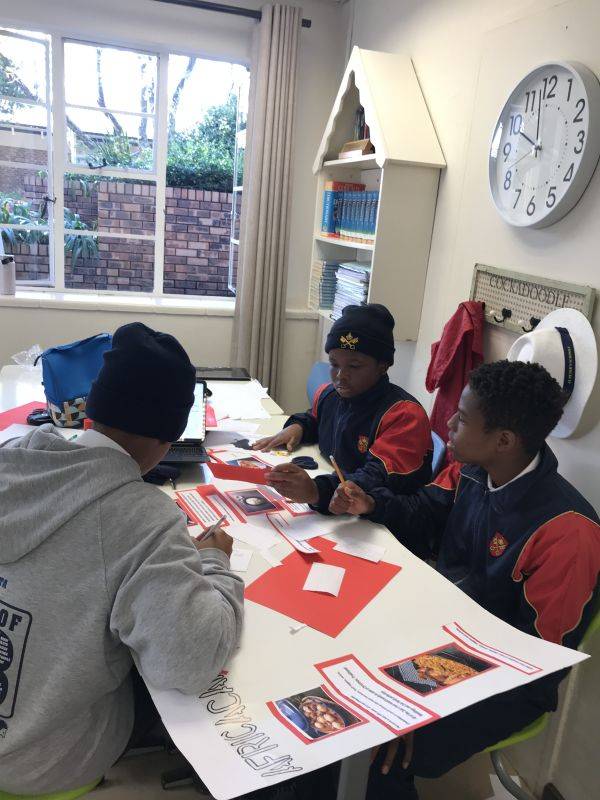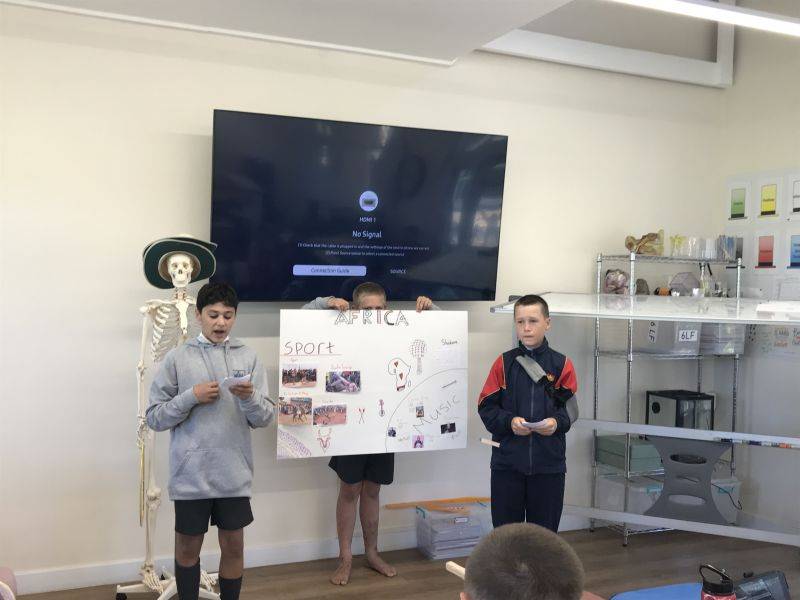ST PETER’S BOYS PREP CELEBRATES AFRICA MONTH THROUGH THE FLEXIBLE LEARNING PROGRAMME
On 25 May we celebrated Africa Day and in a school context, it is important because it allows us to expose the children to new perspectives and ideas. The boys will better understand the world and the diverse communities by learning about Africa's history, culture, people and inventions. It will also enable them to appreciate their own heritage and identity.
Our Flexible Learning Programmes (FLPs) are a critical component of our learning philosophy at St Peter’s. We focus on 21st-Century skills, which are critical thinking and problem-solving, collaboration, agility and adaptability, initiative and entrepreneurialism, effective oral and written communication, accessing and analysing information, curiosity, creativity and imagination.
So, what happens during an FLP?
- The regular timetable is collapsed, allowing pupils to take charge of planning their day.
- They are given a specific topic to research, and within that, they are provided with choices. These choices include selecting questions and tasks to complete and investigate, as well as deciding how they want to present their work at the end of the FLP.
- This approach encourages them to explore their interests and demonstrate their learning in ways that resonate with them.
















































What the boys researched:
Grade 3
Big Question: What would be the impact on Africa, as a continent, if there were no animals?
Through research, discussions, and creating their own dioramas the boys gained insights into the importance of animals and the potential consequences if they were to disappear. The boys had to choose an endangered animal and research various topics such as habitat, description, threats, location etc. They then took this information and made their own display board as well as a diorama illustrating their chosen animal’s habitat. The boys' project on African Endangered Animals shed light on the crucial role that animals play in Africa's ecosystems and cultural heritage. Understanding the potential consequences of a world without animals is a powerful reminder of the importance of conservation efforts. By engaging in research, creating displays, and fostering discussions, the boys showcased their dedication to growing the awareness of the significance of protecting African wildlife.
Grade 4
Big Question: What would a food truck, that celebrates the cuisine of our chosen African country, look like?
As part of their learning experience, the boys visited the Key's Café Food Truck on campus and asked about the daily operations of a food truck.
The boys delved deep into their chosen African countries, learning about traditional foods as well as exploring aspects such as national colours, flags, plants, animals and landmarks. The more knowledge they acquired about these elements, the better equipped they were to truly celebrate the essence of their respective countries.
Adopting an entrepreneurial mindset, the boys developed a comprehensive business plan This plan included selecting an appealing name, slogan, visually captivating logo that incorporated cultural elements representing their country, creating a menu that offered diverse and authentic dishes from the country's cuisine, and completing a blueprint of their truck's design.
Finally, the most anticipated and exciting stage of the project arrived: bringing all these elements together and constructing a model of a food truck that truly celebrated their African country and its unique cuisine. The boys enthusiastically showcased their creativity and dedication by crafting impressive models that embodied the spirit and flavours of their assigned countries.
Grade 5
Big Question: How are cultures in other African countries similar to ours and how are they different?
The boys embarked on an exciting journey through the African continent. With their passports up to date and visas ready to go, they chose two countries to visit and learn more about virtually. Once their investigation was completed, they were taught how to Vlog, Blog and write a diary entry and, imagining they were tourists, chose one of these ways to represent their findings. The boys loved adventuring around Africa and learning about some of the lesser-known African countries.
Grade 6
Big Question: How have individuals, groups and events, in the course of our history, shaped Africa?
The boys watched a video based on well-known African Leaders and then the question of “What does leadership mean to you?” was discussed openly in class before they moved on to their choice of leader. Through a variety of questions, the boys researched their chosen leader and then presented their research using a combination of posters, slide shows and video documentaries.
During the presentations the boys asked their peers further questions on how the qualities and values associated with their leaders have enabled them to better resolve issues regarding environment, electricity and education which presently face our continent.
Grade 7
Big Question: What are the unique contributions that Africa has given to the world?
The boys worked in pairs and researched a topic that they found interesting out of the following options:
- African Food
- Beliefs
- Healing
- Music
- Dance
- Sport
- Science and Technology
The boys were given creative freedom when deciding on how to present their projects and were encouraged to dig deep into the significance of the topics, to really showcase just how significant Africa is to the rest of the world!
Sports FLP
In Physical Education the staff and boys explored African games that originated in areas where children had limited resources or equipment to play.
Pupils were tasked during the lesson to find things around the school that they could use to play a certain activity. They had loads of fun entertaining themselves with minimal equipment exploring ‘new’ games.
The Flexible Learning Programme was certainly a highlight in the celebration of Africa Month!